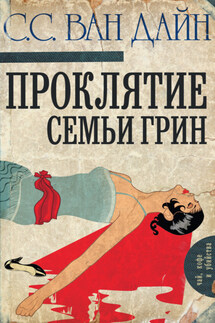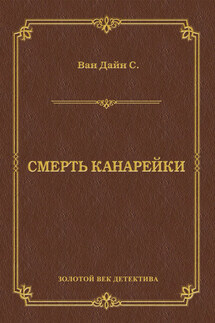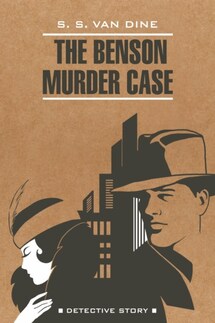The «Canary» Murder Case / Смерть Канарейки. Книга для чтения на английском языке - страница 5
“Well, according to your highly and peculiarly developed processes of reasoning, would the circumstantial evidence of those masculine footprints indicate a man or a woman?”
“Not necessarily either,” Vance answered; “or, rather, a possibility of each. Such evidence, when applied to a human being—to a creature, that is, with a reasoning mind—would merely mean to me that the figure crossing the snow was either a man in his own shoes, or a woman in man’s shoes; or perhaps, even, a long-legged child. In short, it would convey to my purely unlegal intelligence only that the tracks were made by some descendant of the Pithecanthropus erectus[14] wearing men’s shoes on his nether limbs—sex and age unknown. A duck’s spoors, on the other hand, I might be tempted to take at their face value.”
“I’m delighted to observe,” said Markham, “that, at least, you repudiate the possibility of a duck dressing itself up in the gardener’s boots.”
Vance was silent for a moment; then he said:
“The trouble with you modern Solons, d’ ye see, is that you attempt to reduce human nature to a formula; whereas the truth is that man, like life, is infinitely complex. He’s shrewd and tricky—skilled for centuries in all the most diabolical chicaneries. He is a creature of low cunning, who, even in the normal course of his vain and idiotic struggle for existence, instinctively and deliberately tells ninety-nine lies to one truth. A duck, not having had the heaven-kissing advantages of human civilization, is a straightforward and eminently honest bird.”
“How,” asked Markham, “since you jettison all the ordinary means of arriving at a conclusion, would you decide the sex or species of this person who left the masculine footprints in the snow?”
Vance blew a spiral of smoke toward the ceiling.
“First, I’d repudiate all the evidence of the twelve astigmatic adults and the one bright-eyed child. Next, I’d ignore the footprints in the snow. Then, with a mind unprejudiced by dubious testimony and uncluttered with material clues, I’d determine the exact nature of the crime which this fleeing person had committed. After having analyzed its various factors, I could infallibly tell you not only whether the culprit was a man or a woman, but I could describe his habits, character, and personality. And I could do all this whether the fleeing figure left male or female or kangaroo tracks, or used stilts, or rode off on a velocipede, or levitated without leaving tracks at all.”
Markham smiled broadly. “You’d be worse than the police in the matter of supplying me legal evidence, I fear.”
“I, at least, wouldn’t procure evidence against some unsuspecting person whose boots had been appropriated by the real culprit,” retorted Vance. “And, y’ know, Markham, as long as you pin your faith to footprints you’ll inevitably arrest just those persons whom the actual criminals want you to—namely, persons who have had nothing to do with the criminal conditions you’re about to investigate.”
He became suddenly serious.
“See here, old man; there are some shrewd intelligences at present allied with what the theologians call the powers of darkness. The surface appearances of many of these crimes that are worrying you are palpably deceptive. Personally, I don’t put much stock in the theory that a malevolent gang of cut-throats have organized an American camorra, and made the silly night clubs their headquarters. The idea is too melodramatic. It smacks too much of the gaudy journalistic imagination: it’s too Eugène Sue-ish. Crime isn’t a mass instinct except during war-time, and then it’s merely an obscene sport. Crime, d’ ye see, is a personal and individual business. One doesn’t make up a










